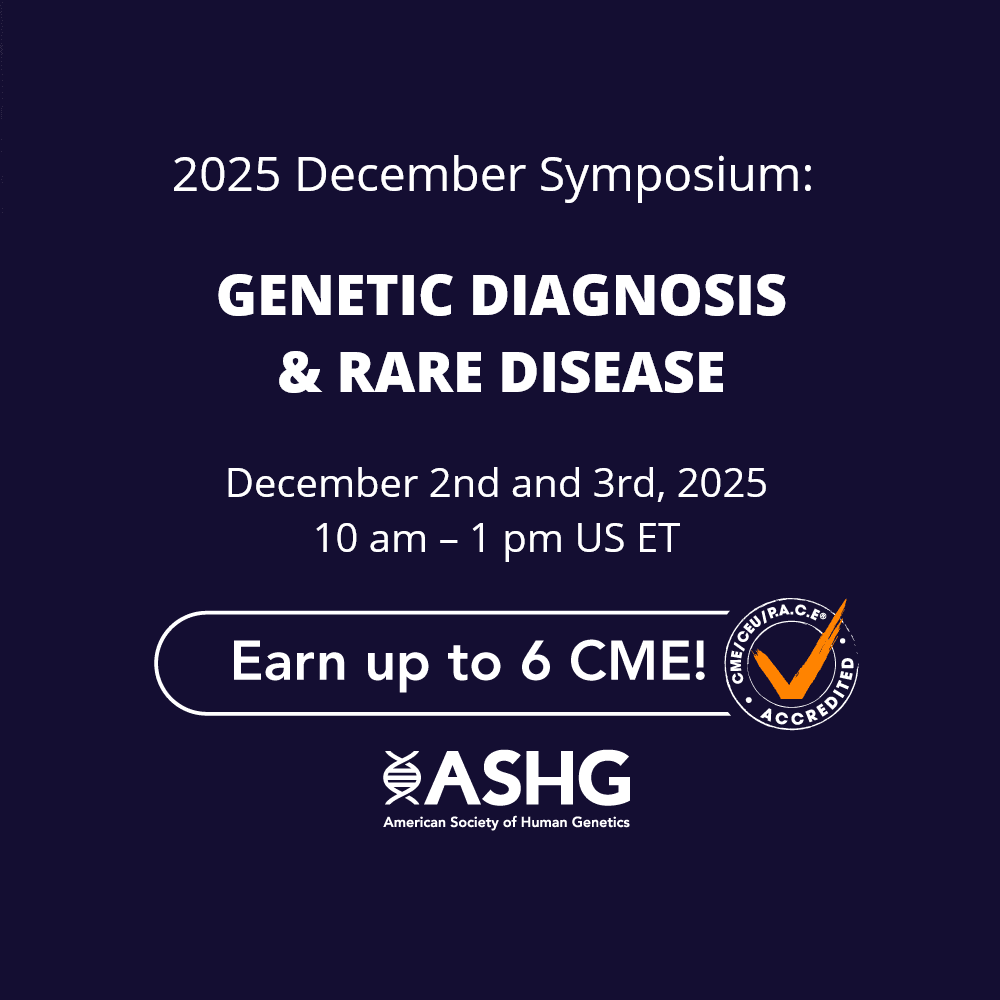Description
The ASHG Genetic Diagnosis & Rare Disease Virtual Symposium will focus on rare genetic diseases, their clinical diagnosis, and the current/emerging technologies to understand them. The presentations will cover the diagnosis of rare diseases, from detecting difficult structural variation (such as intrachromosomal inversions) to approaches for reducing time-to-diagnosis with novel, integrative genomic methods.
All times listed below in Eastern USA. See the full agenda!
Schedule
Day 1, December 2
9:30-10:00 am, Opening Keynote with Rebecca Ahrens-Nicklas, MD and Kiran Musunuru, MD, PhD, MPH, ML, MRA
10-11:30 am, Novel Insights on “Hidden” Structural Variants: Origin and Phenotypic Consequences of Inversions to Rare Diseases
Segments of DNA with altered sequenced orientation compared to the reference genome are inversions. These structural rearrangements, which can drive rare disease, can be difficult to detect. In this session, we’ll discuss approaches to their detection, their molecular characteristics, features of inversion haplotypes, and their consequences in complex rearrangements.
11:30 – 1pm, Dilemmas of omic technologies for molecular diagnosis of rare disease
This session addresses critical knowledge and practice gaps in implementing advanced omic technologies for rare disease diagnosis. Attendees will learn to make informed decisions about technology implementation, develop validation protocols, and establish sustainable workflows.
Day 2, December 3
9:30-10:00 am, Opening Keynote with Helene Cederroth and Eric Klee (Undiagnosed Hackathon)
10-11:30 am, Ending Diagnostic Odysseys and Advancing Genomic Medicine with Novel Diagnostic Approaches in the Undiagnosed Diseases Network (UDN)
Individuals with rare, complex genetic diseases may spend years searching for a genetic cause of their condition (diagnostic odyssey). This session will cover approaches to shortening time-to-diagnosis. We’ll discuss RNA-Seq diagnosis after failed genomic trio analysis, federated variant matching between patients, CAP/CLIA-certified RNA-Seq as a diagnostic, and profiling the epigenome with long-read sequencing.
11:30 – 1pm, Integrative Multi-Omics: Advancing Precision Health Through Cutting-Edge Technologies, Environmental Insights, and Community Engagement
Technology has allowed us to assay many different aspects of cellular state, from genome sequence to proteomics to environmental exposure. This session will cover methods for integrating these different data sources into a coherent picture. We’ll discuss challenges of integration (such as batch effects), how multi-omics can improve disease surveillance, the importance of community partners in multi-omics studies, and approaches to integrating environmental exposure with multi-omics data.


